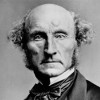“ the position of some is rendered worse; and he learns but too well, that no people and no individual, how enlightened soever they may be, can lay claim to infallibility;—the condition of others is improved; whence he infers that man is endowed with an indefinite faculty of improvement. ”
Alexis de Tocqueville, Democracy in America (1840). copy citation
| Author | Alexis de Tocqueville |
|---|---|
| Source | Democracy in America |
| Topic | improvement learning |
| Date | 1840 |
| Language | English |
| Reference | |
| Note | Translated by Henry Reeve |
| Weblink | http://www.gutenberg.org/files/816/816-h/816-h.htm |
Context
“In proportion as castes disappear and the classes of society approximate—as manners, customs, and laws vary, from the tumultuous intercourse of men—as new facts arise—as new truths are brought to light—as ancient opinions are dissipated, and others take their place—the image of an ideal perfection, forever on the wing, presents itself to the human mind. Continual changes are then every instant occurring under the observation of every man: the position of some is rendered worse; and he learns but too well, that no people and no individual, how enlightened soever they may be, can lay claim to infallibility;—the condition of others is improved; whence he infers that man is endowed with an indefinite faculty of improvement. His reverses teach him that none may hope to have discovered absolute good—his success stimulates him to the never-ending pursuit of it. Thus, forever seeking—forever falling, to rise again—often disappointed, but not discouraged—he tends unceasingly towards that unmeasured greatness so indistinctly visible at the end of the long track which humanity has yet to tread.”
source



